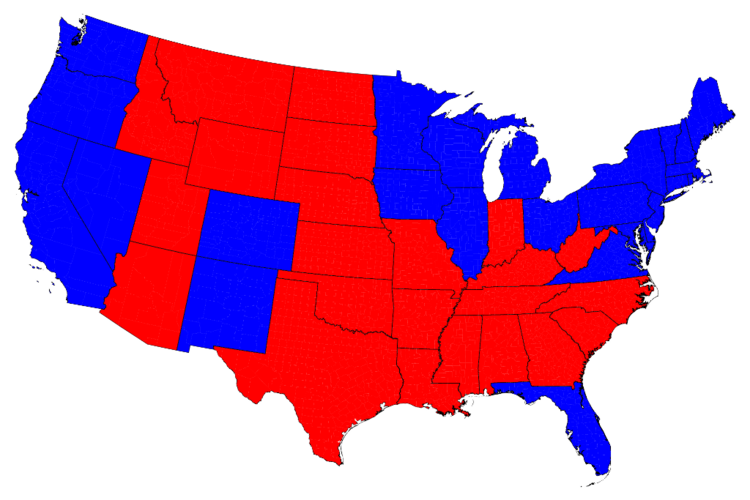Ahead of the 2016 election, (Un)Conventional Wisdom is presenting a short history of each state’s role in modern presidential politics. Check back throughout the summer to see how changing demographics and politics have affected your state's voting patterns and party allegiance.
How Delaware Lost its Bellwether Mojo and Joined the Northeast Corridor
The First State was the best place to find out where the country was going in the last half of the 20th century. Delaware voted for the winner in every presidential election from 1952 through 1996, the only state to do so. Since then, it’s been absorbed by the Democratic Party’s strongest region, the Northeast Corridor.
For the Democrats, It's Pennsylvania or Nothing
Almost every four years Pennsylvania is treated as a swing state, but it has a persistent lean. It has been at least slightly more Democratic than the rest of America for more than 60 years, longer than Massachusetts or Minnesota or any other state. Since 1952, whenever the Democrats have lost Pennsylvania, they’ve lost the country by at least seven points.
Sprawl Suits the Republican Party in Georgia
For most of its history, Georgia was a gimme for the Democrats in presidential elections, but the population boom of the past half-century has made the GOP supreme.
Connecticut Slows Down, Settles in Democratic Groove
Connecticut still has plenty of big campaign contributors and Fortune 500 companies (17!), but this secular, environmentalist state that depends on immigration for its meager population growth is pretty much off the radar of the Republican Party.
New Jersey Likes Incumbents, Learning to Love Democrats
New Jersey has long been one of our most affluent states. Perhaps it’s not a coincidence that it’s been relatively comfortable with whichever political party is in occupancy at the White House, often lagging behind the rest of the country in lashing out against incumbents.
Massachusetts Wants to Lead, but America Isn't Crazy about the Idea
The Bay State is an outlier in its loyalty to the Democratic Party and its seemingly inexhaustible supply of presidential candidates.
No Clear Line between Urban and Suburban Vote in Maryland
Democratic dominance in Maryland comes from five counties running through the middle of the state, connecting the Baltimore and Washington, D.C. areas. But while the western panhandle and Eastern Shore are almost irrelevant in presidential elections, they occasionally get their way in off-years.
South Carolina is the Citadel of the Republican South
South Carolina was the first piece in the Republican Party’s Southern strategy, the only state in the region to vote for both Barry Goldwater in 1964 and Richard Nixon in 1968. It has been rewarded with hosting privileges for one of the earliest and most important contests used to select the GOP’s presidential nominees.








